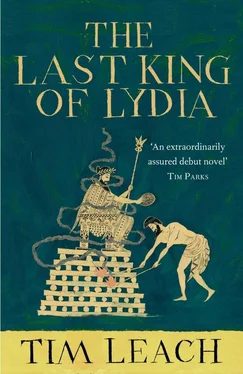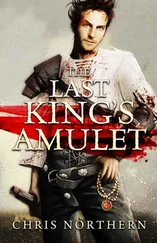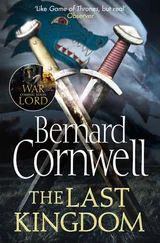Tim Leach - The Last King of Lydia
Здесь есть возможность читать онлайн «Tim Leach - The Last King of Lydia» весь текст электронной книги совершенно бесплатно (целиком полную версию без сокращений). В некоторых случаях можно слушать аудио, скачать через торрент в формате fb2 и присутствует краткое содержание. Год выпуска: 2013, ISBN: 2013, Издательство: Atlantic Books Ltd, Жанр: Исторические приключения, на английском языке. Описание произведения, (предисловие) а так же отзывы посетителей доступны на портале библиотеки ЛибКат.
- Название:The Last King of Lydia
- Автор:
- Издательство:Atlantic Books Ltd
- Жанр:
- Год:2013
- ISBN:9780857899200
- Рейтинг книги:5 / 5. Голосов: 1
-
Избранное:Добавить в избранное
- Отзывы:
-
Ваша оценка:
- 100
- 1
- 2
- 3
- 4
- 5
The Last King of Lydia: краткое содержание, описание и аннотация
Предлагаем к чтению аннотацию, описание, краткое содержание или предисловие (зависит от того, что написал сам автор книги «The Last King of Lydia»). Если вы не нашли необходимую информацию о книге — напишите в комментариях, мы постараемся отыскать её.
The Last King of Lydia — читать онлайн бесплатно полную книгу (весь текст) целиком
Ниже представлен текст книги, разбитый по страницам. Система сохранения места последней прочитанной страницы, позволяет с удобством читать онлайн бесплатно книгу «The Last King of Lydia», без необходимости каждый раз заново искать на чём Вы остановились. Поставьте закладку, и сможете в любой момент перейти на страницу, на которой закончили чтение.
Интервал:
Закладка:
He drew aside the heavy drape at the far end of the room, felt cool air from the tunnel behind it. He reached up and pulled on a cord hanging by the wall. Deep down below, too distant for him to hear, he knew a small silver bell would be ringing. Now they would know that he was coming.
He held the torch in front of him to light the way, and began to descend. He made his way along the narrow corridor, the ceiling just high enough that he could walk without stooping. It had been made specifically for him.
The passage wound down, until glimmers of light began to appear in the distance. The air grew brighter, then too bright, as though he were heading towards the heart of the sun. The end of the passage opened up into an enormous chamber, and the king entered the lower treasury.
He had begun work on these chambers as soon as his father had died. It had taken years to plan and excavate, and he had kept the digging as close a secret as possible. The slaves who had laboured there had been dispatched to work in the mines at the far corners of his empire immediately after the project had been completed. Croesus sometimes wondered to whom they might have told their secrets in the few short years before rockfalls and rotten lungs had silenced them all, but this did not genuinely concern him. If the bandit kings and petty officials of the outer kingdoms knew of the treasury, he did not fear them, but he wanted none within the palace to know the details of this chamber. The treasuries of the upper floors held hundreds of diverse and priceless artefacts. This lower floor was devoted to a single form of treasure.
Thousands of gold and silver coins were piled high throughout the room, forming towers and buttresses and fortresses. Elsewhere they were piled into hills and mountains of gold and silver. Dozens of burning torches ringed the chamber, the polished stone walls and glittering coins reflecting and amplifying the light until it was intense, near blinding. But it did not trouble the king. Croesus had grown used to staring into the sun of his riches.
His father had long desired gold coins. Alyattes had known that gold and silver both hid within the electrum of the Pactolus river, but his alchemists were never able to discover the technique of separating them. His dream had been to stamp the seal of Lydia on golden coins that would fill the markets of Sardis and the Hellenic cities on the far side of the sea. But he died unsatisfied.
Croesus’s metallurgists had finally perfected the art of turning electrum into gold and silver. They had tried every possible combination of heat and pressure that they could imagine, to no effect. One day, in sheer desperation, they added salt to the molten metal, as though it were a gamey meat in need of seasoning, and once the fire was scorching hot, the silver separated to the top, enabling it to be skimmed away like scum from a stew, and the bottom of the crucibles shone with pure gold.
Croesus had kept finding reasons to postpone the day when the coins would enter circulation and replace the electrum coins that had so fascinated his father. Soon, every merchant and tradesmen in Lydia would tally his life in these ovals of gold and silver, each one marked with the lion and bull. But, for now, the coins remained within this sealed chamber. They belonged to him alone.
The room was still, near silent. He could hear the crackling of the torches, the occasional thud as a sack of coins arrived down one of the steep tunnels that led from the mints above ground. Soft beneath these other sounds were the shuffling, hesitant footsteps of the money counters.
They were all blind. These slaves lived within the treasury, in a small antechamber separate from the coins. Food and water reached them through the same shafts where the coins came from above. They would never be permitted to leave. They would grow old and die in a world of gold.
Croesus had no idea what they spoke about to pass the long days, what couplings occurred down here in the darkness, what half-remembered poems were recited, the imaginative journeys that they went on together to escape their closed world, the petty fights and squabbles that broke out over the few luxuries they were allowed. He could only imagine what they did to alleviate the maddening boredom of shifting and polishing and ordering the endless mountains of coins.
When the silver bell rang, they knew to light the torches and be silent, until they could be certain he had gone. Even without sight, they always knew where he was; the king’s confident footsteps identified him as one who bore the privilege of vision.
He approached a large, loose pile of gold coins. He thrust his hands into them, gently working his fingers into the heavy metal until his forearms were buried. It felt as though he held his hands in a stream of cold water, and he sensed his burning blood cool.
The small pile of silver near his feet was a healthy slave. In the mound of gold next to it he saw a galleon; the larger mound that towered over it was a fleet. From one corner of the room, where gold and silver mingled freely together like captains and spearmen, he could hear the marching feet of ten thousand soldiers.
On to even larger mounds, and he saw towns, cities, entire races of people locked into the gold and ordered at his command. He saw an empire, stretching across leagues and nations and rivers and seas, all contained within a single, high-chambered room, and perceived by him alone.
He did not yet know what he would do with his wealth. The possibilities were overwhelming, each idea giving way to another as soon as he thought of acting on it. But he knew that, given time, he could find the right use for it. All creation was there, waiting to spring into life. He only had to choose what form it would take, and he could shape a universe with his vision.
My father was right in one thing at least, Croesus thought as he stood amidst all his wealth, new worlds waiting to be born. This is worth more than love.
3
Two years after Atys died, word came that the empire of the Medes had fallen.
The conquest had been sudden, like some disaster of the earth or sea that is precisely managed by the Gods. An exhausted messenger arrived at the court of Sardis to bring word that a Persian army was marching on Ecbatana, the capital of Media. Before Croesus could decide whether to send the man back alone or accompanied by the entire Lydian army, another messenger arrived with the news that the Medes’ army had been destroyed and Astyages had been captured. Cyrus of Persia now sat on the throne of the Medes.
Cyrus. The name meant nothing to Croesus, but rumours soon followed the messengers. That he was of a Persian noble family was all that could be said with confidence — all else was the stuff of folktales. Some said that Cyrus had been raised by wolves, that he fed only on the flesh of kings and drank only the waters of the river by which he had been born. Others claimed that wild beasts formed the vanguard of his army, while immortal demons served as its elite warriors. Persian sorcerers were said to have destroyed the army of the Medes with lightning from the sky and earthquakes that shook men to death; not a single blow was struck. Croesus soon gave up any attempt to identify the truth behind these wild tales. A new power had risen in the East. The only thing that mattered was how to respond.
At the council of war, they began with numbers. The respective sizes of the Persian and Lydian armies, the cost of mercenaries, the yields of croplands, the wealth of mining regions. Above all, they sought to calculate what Lydia stood to gain and lose. The fate of a dozen nations was reduced to numbers inked on parchment and etched in wax: a balance sheet for a war. It was only after they had finished their calculations that they talked of what should be done.
Читать дальшеИнтервал:
Закладка:
Похожие книги на «The Last King of Lydia»
Представляем Вашему вниманию похожие книги на «The Last King of Lydia» списком для выбора. Мы отобрали схожую по названию и смыслу литературу в надежде предоставить читателям больше вариантов отыскать новые, интересные, ещё непрочитанные произведения.
Обсуждение, отзывы о книге «The Last King of Lydia» и просто собственные мнения читателей. Оставьте ваши комментарии, напишите, что Вы думаете о произведении, его смысле или главных героях. Укажите что конкретно понравилось, а что нет, и почему Вы так считаете.












